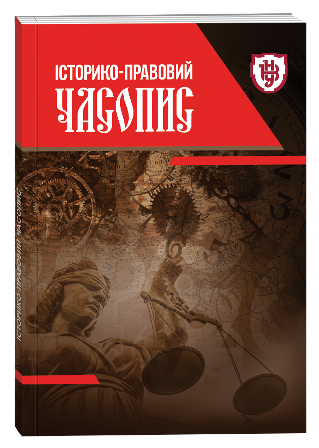DOSSIER, PROFILE, TARGETING AS ANALYTICAL PRODUCTS IN LAW ENFORCEMENT INSTITUTIONS
DOI:
https://doi.org/10.32782/2409-4544/2025-1/9Keywords:
the analytical document, a person under the control of law enforcement agencies, information aspect, communicative aspect, analytical aspect, dossier, profile, orientation.Abstract
The article is devoted to studying analytical documents on a person under the control of law enforcement agencies. The research aims to analyze the informational, communicative and analytical aspects of creating a dossier, profile (portrait) and targeting by police officers. It is established that these analytical products have not yet been the subject of a comprehensive study. The author analyzes the existence and essence of the definitions of dossier, profile, and targeting and proposes her definitions of these categories as analytical documents about a person in the law enforcement system. The author analyzes in detail the components of the information aspect of police officers’ work with analytical documents. The author describes the specifics of the basic arrays of information (natural and social), forms (aesthetic and semantic), and types of information which are determined by various criteria (by the method of transmission and perception, by the mediation of perception and processing, by the public purpose) and reveals their importance for analytical documents on a person. Different information properties (attributive, pragmatic, dynamic) and their practical significance for creating a dossier, profile, and targeting are analyzed separately. Considerable attention is paid to the requirements for information (qualitative, quantitative, value) and the requirements for various types of information sources, and their importance for the work of police officers is revealed. In analyzing the communication aspect, attention is paid to all communication elements and means of communication, as well as their functional significance for the information and analytical work of law enforcement agencies with personal documents. The study of the analytical aspect concerned the analysis of the criteria for selecting and evaluating information, with a wide range of analytical methods described and examples of the implementation of each method in the work of law enforcement agencies with personal documents. The study’s practical significance is to form a theoretical basis for optimizing the practical work with analytical materials on a person under the control of law enforcement agencies.
References
Дідковська-Бідюк М. В. Психолого-правові засади використання профайлінгу в діяльності національної поліції : дис. … д-ра філос. : 053 Психологія. Київ, 2021. 185 с.
Федчак І. А. Основи кримінального аналізу : навч. посіб. Львів : ЛДУВС, 2021. 288 с.
Про затвердження Інструкції з організації реагування на заяви і повідомлення про кримінальні, адміністративні правопорушення або події та оперативного інформування в органах (підрозділах) Національної поліції України : наказ МВС України від 27.04.2020 № 357. URL : https://zakon.rada.gov.ua/laws/show/z0443-20?find=1&text=%D0%BE%D1%80%D1
%96%D1%94%D0%BD%D1%82%D1%83%D0%B2%D0%B0%D0%BD%D0%BD%D1%8F#Text.
Про затвердження Порядку здійснення аналізу та оцінки ризиків, розроблення і реалізації заходів з управління ризиками для визначення форм та обсягів митного контролю : наказ Міністерства фінансів України від 31.07.2015 № 684. URL : https://zakon.rada.gov.ua/laws/show/z1021-15#Text.
Основи кримінального аналізу: теорія та практика застосування в оперативних підрозділах Державної прикордонної служби України : навч. посіб. / О. С. Кіреєва та ін. Хмельницький : НАДПСУ, 2022. 360 с. URL : file:///C:/Users/eenu/Downloads/osnovy_kryminaljnogo_analizu%20(1).pdf.
Бацевич Ф. С. Основи комунікативної лінгвістики : підручник. Київ : Академія, 2004. 344 с.







